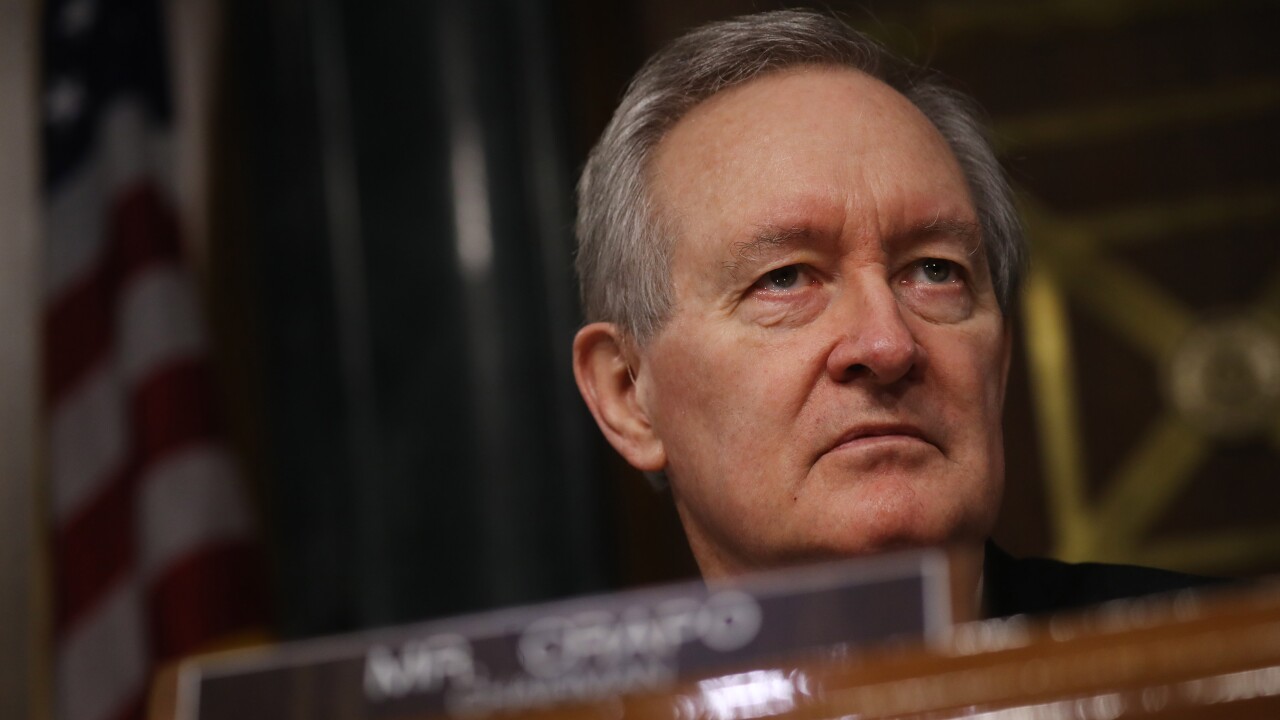-
Measures designed to give banks and credit unions more flexibility to help customers weather the coronavirus pandemic are set to expire Dec. 31 unless Congress renews them.
September 18 -
Some lawmakers fear that when forbearance plans and enhanced unemployment coverage expire, the consequences for mortgage borrowers still affected by the pandemic will be severe.
June 9 - LIBOR
Federal Reserve Chairman Jerome Powell told senators that the central bank is willing to explore a credit-sensitive interest benchmark in addition to the secured overnight financing rate, which some banks say could cause problems during economic stress.
February 12 -
The head of the Senate Banking Committee invited the housing secretary to Idaho to discuss low-income housing shortages.
August 9 -
There is bipartisan agreement in the Senate that Fannie Mae and Freddie Mac are "too big to fail," but some lawmakers are skeptical that a SIFI designation is appropriate.
June 25 -
B. Riley FBR initiated equity coverage on Fannie Mae as the chances for privatization of the government-sponsored enterprises improved in a housing finance reform package.
April 5 -
The administration official will serve a five-year term as Fannie Mae and Freddie Mac's chief regulator.
April 4 -
American Banker's Rob Blackwell and Cowen’s Jaret Seiberg discuss Fannie Mae, Freddie Mac and the future of housing finance
March 27 -
Senators dove into how to ensure housing finance reform serves lenders of all sizes, just as the Trump administration moved closer to crafting its own GSE plan.
March 27 -
Lawmakers still have a long way to go before enacting housing finance reform, but the testimony could signal how future legislative talks will play out.
March 26 -
Starting March 26, Senate Banking Committee Chairman Mike Crapo will hold two days of hearings on his plan for returning Fannie Mae and Freddie Mac to private ownership.
March 25 -
There’s bipartisan consensus that the conservatorships of Fannie Mae and Freddie Mac are unsustainable, but that may not be enough for lawmakers to upend the current system.
March 19 -
The Senate Banking Committee will hold two hearings at the end of March on Chairman Mike Crapo’s most recent framework for housing finance reform.
March 15 -
In remarks to credit unions, the Senate Banking Committee Chairman said that fixing the government-sponsored enterprises and data security were priorities.
March 13 -
American Banker and National Mortgage News are offering an exclusive discussion of how policymakers may revamp Fannie Mae and Freddie Mac and what that will mean for mortgage lenders of all sizes.
March 11 -
Community banks and credit unions fear a Senate plan and other legislative ideas will nullify steps taken by Fannie Mae and Freddie Mac that have made it easier for smaller institutions to compete.
February 28 -
The Senate Banking Committee's vote on Mark Calabria's nomination to lead the agency comes amid speculation about congressional and administrative GSE reform plans.
February 21 -
The administration’s choice to regulate the government-sponsored enterprises appeared to distance himself from speculation that the White House may try to overhaul housing finance without legislation.
February 14 -
Recent developments give the impression that the administration and lawmakers are in direct competition, but the ultimate framework may rely on coordination from both branches of government.
February 5 -
Just as the Trump administration appears focused on releasing a framework without Congress, the Senate Banking Committee has re-entered the policy fray with a new proposal.
February 1















